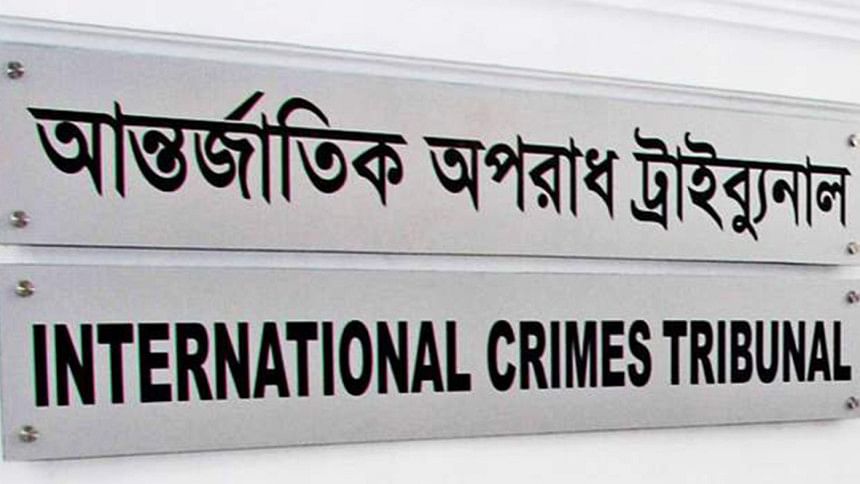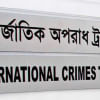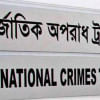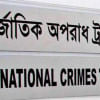War Crimes in Gaibandha: 5 sentenced to death

The International Crimes Tribunal-1 yesterday handed down death penalty to five Gaibandha men for committing crimes against humanity during the Liberation War.
Members of local Razakar Bahini, an auxiliary force of Pakistani army, the convicts were involved in abduction, confinement, torture and killing of at least 22 people, including seven freedom fighters, in the district in 1971.
“It has been proved that the convicted accused persons were conscious and culpable part of the criminal enterprise. Their acts and conduct as have been found proved formed part of designed attack which was intended to liquidate the unarmed civilians,” the tribunal said.
Of the five, only Ranju Miah, 62, is in jail and was produced before the tribunal yesterday. The rest are on the run.
The four are Abdul Jabbar Mondal, 89, his two sons Jachijar Rahman alias Khoka, 67, and Abdul Wahed Mondal, 65, and Montaz Alia Bepari alias Momtaz, 71.
All of them are from Gaibandha Sadar upazila and were involved with Jamaat-e-Islami, an anti-liberation party, during the war, according to the case documents.
The three-member tribunal led by its Chairman Justice Md Shahinur Islam and members Justice Amir Hossain and Justice Md Abu Ahmed Jamadar asked the Inspector General of Police to take effective, prompt and appropriate measures to arrest the fugitives.
According to the case documents, Jabbar, a village doctor by profession, was an active member of Jamaat in 1971 and was involved in forming local Peace Committee and Razakar Bahini. He was the commander of his union’s Razakar Bahini.
Other convicts were also active members of both Jamaat and Razakar Bahini and committed crimes during the Liberation War, according to the prosecution.
“The convicted accused persons had acted knowingly and being part of the murderous enterprise. Mode of their participation in perpetrating the crimes was indeed full of deliberate aggression,” the tribunal said while delivering the 167-page verdict.
“Taking all these factors into account we are of the view that the wheels of justice must move not only to halt the culture of impunity but also for healing the immense trauma and untold wound the victims and sufferers sustained.”
Prosecutor Mukhlesur Rahman Badal expressed satisfaction over the judgment, saying that the victims’ families got solace after a long time.
However, state-appointed defence counsel Abul Hasan said he was aggrieved by the verdict and he would advise his client to file an appeal with the Supreme Court.
According to the International Crimes (Tribunals) Act, 1973, a war crimes convict can file an appeal with the SC within 30 days from the date when the verdict is declared.
With the latest judgement, the war crimes tribunals have so far delivered 40 verdicts against 94 people. Of them, 68 have been sentenced to death.
CHARGES, PUNISHMENT
The tribunal found all the five convicts guilty on the first charge and gave them death penalty.
According to the charge, the five, along with Pakistan army members, and fellow Razakars attacked a Hindu-dominated Bishnapur village in Gaibandha Sadar upazila in the first part of June 1971 and caught, tortured several people, killed two Hindus and forced 300 to 400 other Hindus of Shahapara union to leave the country.
Four accused, except Ranju, were sentenced to death on the second charge.
The convicts, along with Pakistan army and other Razakars, launched an attack in Nandina village of the same upazila on October 18 in 1971 and shot eight people dead and destroyed 40 to 50 houses, read the second charge.
According to the third charge, the four convicts with their fellow Razakars and army men carried out an attack in Daulatpur and killed five on the same day. They were given death penalty on the charge.
The five convicts on the same day launched a systematic attack in Nandina and Daulatpur and caught non-combatant freedom fighter Abul Kashem from Nandina and tortured him by hanging him with a tree. He was forced to drink urine when he wanted to drink water. Later, he was shot dead, according to the fourth charge.
Besides, they killed six other non-combatant freedom fighters, added the charge.
They were handed down death penalty on the charge. However, death sentences would naturally be merged, the tribunal said.

 For all latest news, follow The Daily Star's Google News channel.
For all latest news, follow The Daily Star's Google News channel. 








Comments